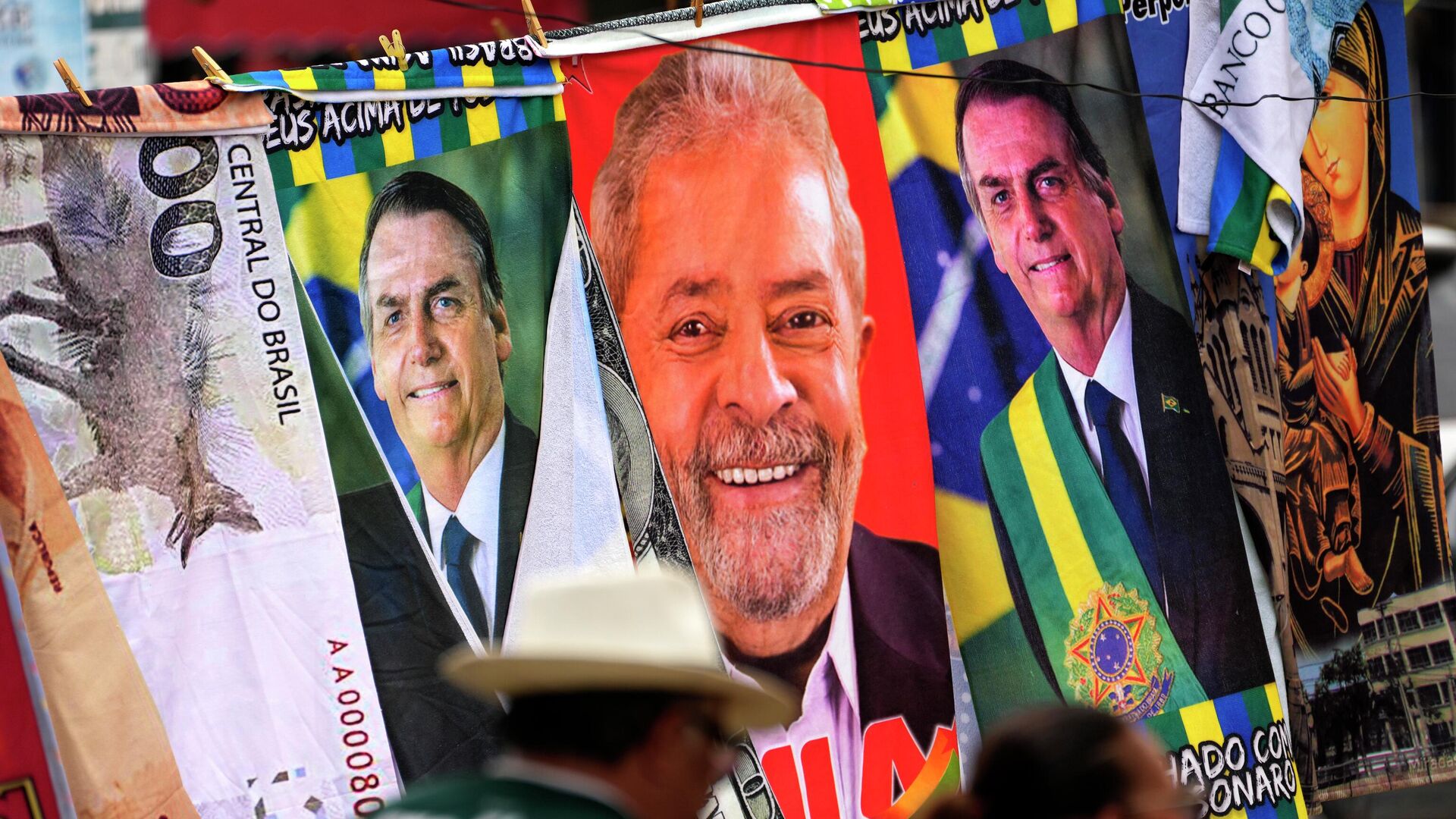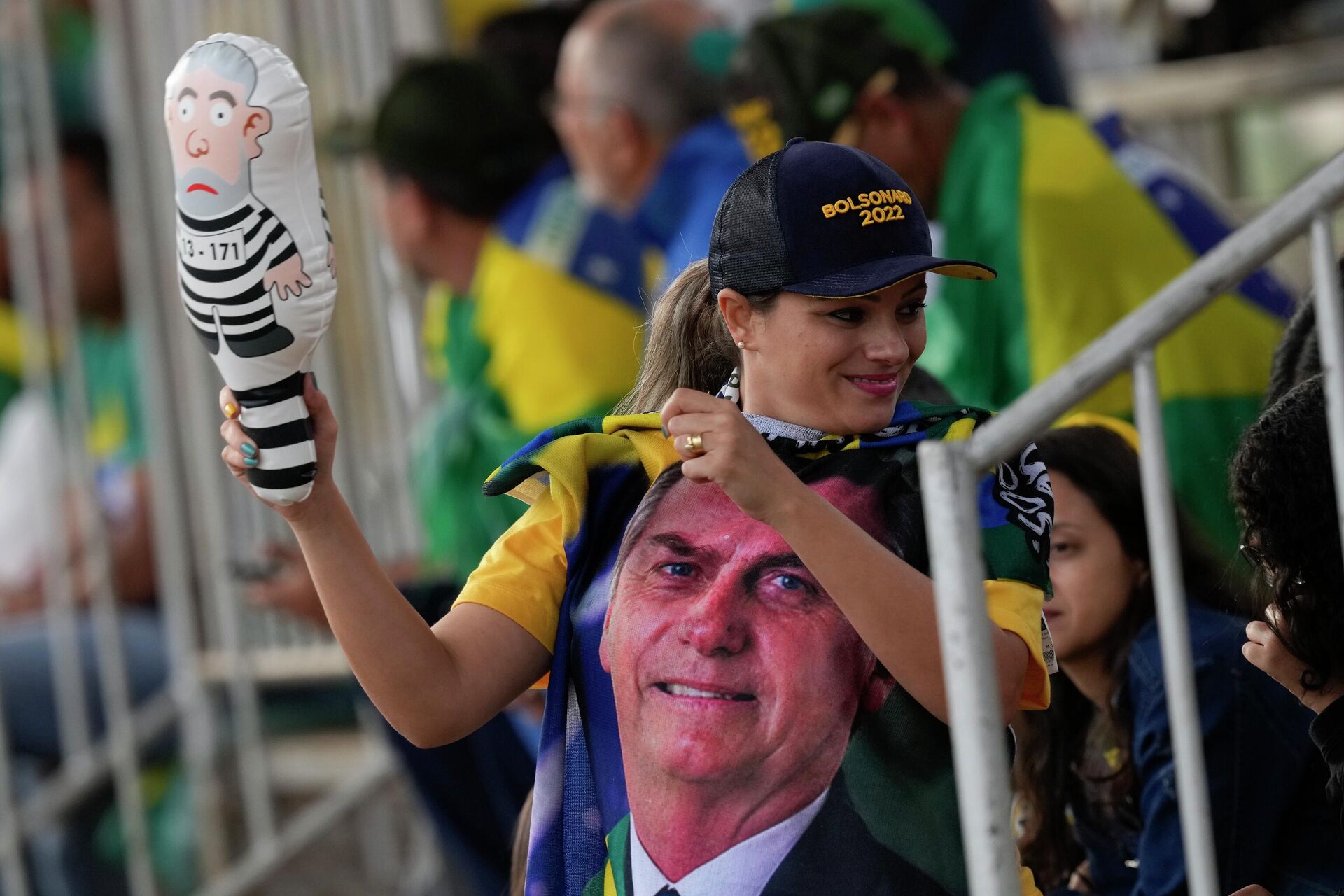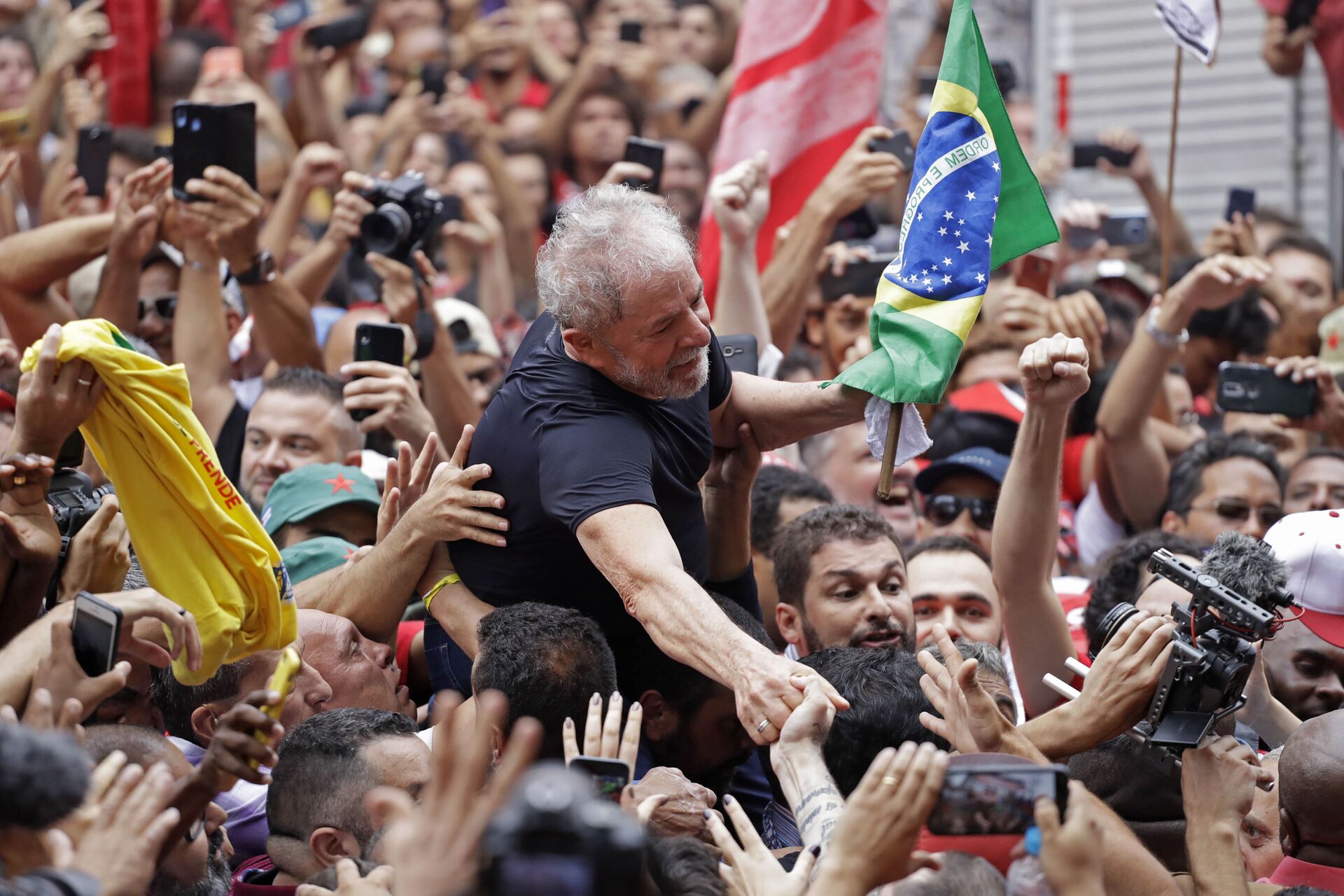Bolsonaro v. Lula: Who Are the Top Contenders in Brazil’s Presidential Election?
12:00 GMT 02.10.2022 (Updated: 10:57 GMT 11.03.2024)

© AP Photo / Eraldo Peres
Subscribe
Brazilians are headed to the polls Sunday to vote in what’s turned out to be a very closely watched election this year as right-wing incumbent Jair Bolsonaro will go up against leftist and former President Luiz Inacio Lula da Silva. All seats in the lower house, all governorships, and a third of the seats in Brazil’s Senate will also be decided.
It’s a politically heightened moment for the nation, with prices for food, fuel, and other essentials at record highs after a poor crop season. Though the election is being contested by 11 candidates, only two stand out as having a chance at the runoff, which will be held on October 30 if none of the presidential candidates reach 50% of the votes.
Jair Bolsonaro
An army captain who came into politics in the late 1980s with the Christian Democratic Party, Bolsonaro made his way through the party’s ranks up until his 2018 presidential campaign, which he won in a runoff against leftist Fernando Haddad with 55% of the vote.
At the time, violent crime in Brazil was rising and the economy was recovering from a recession. Bolsonaro got a lot of attention for making statements claiming to be “pro-torture” and imploring police to “shoot to kill.” His supporters saw him as being “anti-system,” and as a bastion against corruption, which was rampant.
Bolsonaro campaigned against da Silva, who was in jail at the time, until he was (illegally) barred from the election.

Сторонник президента Жаира Болсонару демонстрирует надувную фигурку с изображением бывшего президента Луиса Инасиу Лулы да Силвы во время военного парада, посвященного двухсотлетию независимости страны, в Бразилиа, Бразилия
© AP Photo / Eraldo Peres
Since 2018, Bolsonaro has drawn criticism for failing to improve living standards in Brazil and for sexist and “racist” comments. Seen as the “Trump of the Tropics,” Bolsonaro appears unlikely to be a candidate who loses gracefully as there have already been talks of election fraud.
However, many Brazilians appear to appreciate Bolsonaro’s defense of the private sector, his conservative social values, and his support for the Christian faith, which is emblemized in his slogan: “Brazil above all, God above everyone.”
Bolsonaro has painted a picture of himself as the only one who can “safeguard the Christian faith,” shoring up a crucial evangelical vote, with pastors warning their followers “on facebook and in pulpits” that da Silva poses a risk to Christian churches – a claim da Silva denies.
Despite backing from his supporters, Bolsonaro’s presidential term has been riddled with issues including the Amazon rainforest’s worst deforestation in 15 years. Thousands have also protested his failure to address the COVID-19 pandemic, which killed more than 680,000 Brazilians – the second highest death toll in the world.
Luiz Inácio Lula da Silva
Da Silva, who became president in 2003 and served two terms until 2010, is currently ahead in the polls, but the question is whether he can win the first round of votes – which would require him clinch more than 50% of the ballots – or if the election will go to a runoff.
Considered Brazil’s first working-class president, and a former metal worker and union leader, da Silva’s presidential reign coincided with a booming economy. When he left office in 2010, he did so with an 83% approval rating.
Da Silva runs on a platform aimed at taxing the rich, introducing policy for land reform, raising the minimum wage, and fighting deforestation of the Amazon rainforest.
“Everyone here, even those who are not engineers, knows that a house starts with good foundations,” he told supporters in a televised address in June. “These are our foundations. We will build our house overtime.”

Former Brazilian President Luiz Inacio Lula da Silva is carried by supporters during a rally at the Metal Workers Union headquarters, in Sao Bernardo do Campo, Brazil, Saturday, Nov. 9, 2019
© AP Photo / Nelson Antoine
In 2017, da Silva was entangled in a large corruption investigation called Operation Carwash, which led to a money laundering conviction and 12-year prison sentence, though he only served 18 months. The Brazilian Supreme Court later annulled his conviction. Throughout the ordeal, da Silva maintained his innocence, claiming the charges had been politically motivated.
Incidentally, the judge who convicted da Silva on corruption charges in 2018 was a candidate during the 2022 election cycle; however, it was ultimately called off in March.
The former Brazilian president was seen on Twitter Saturday urging citizens of Brazil to turn out for Sunday’s vote "so that we can rebuild a country with a better future, international protagonism and dear to all."
Amanhã decidiremos sobre o futuro do Brasil. Seu voto faz a diferença. E se você está fora do país, não deixe de votar e participar. Por seu país, sua família, seus amigos. Para voltarmos a construir um país com um futuro melhor, protagonismo internacional e querido por todos.
— Lula 13 (@LulaOficial) October 1, 2022
If Lula wins, he will join a growing progressive group of Latin American presidents that includes Alberto Fernández in Argentina (2019), Luis Arce in Bolivia (2020), Pedro Castillo in Peru (2021), Gabriel Boric in Chile (2021), Xiomara Castro in Honduras (2022), and recently Gustavo Petro, the first left-leaning president in Colombia’s history, who took office on August 7.

